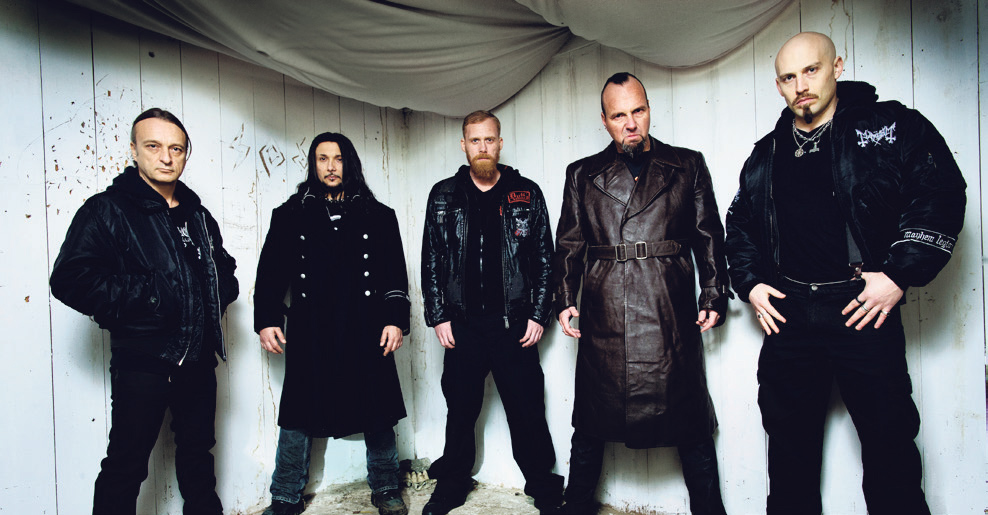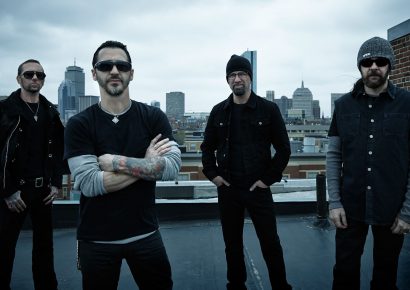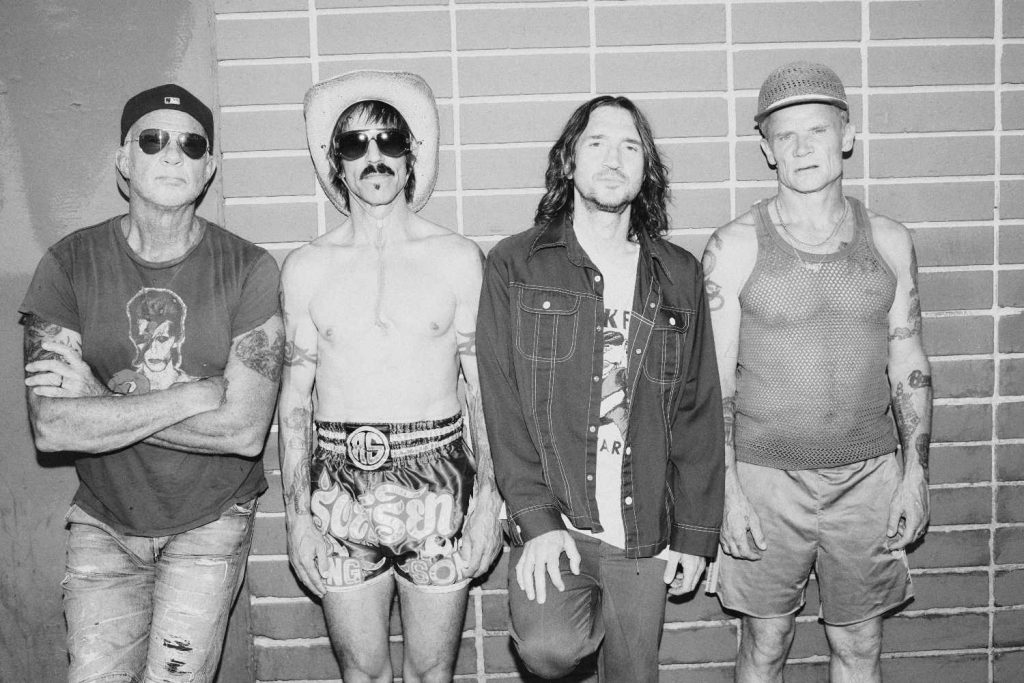“We were ahead, we pushed the boundaries – and the guys too,” says Mayhem vocalist Attila Csihar. “Some guys went into the wrong direction, I believe, and they kind of stepped over.” Mayhem formed in 1984, and like the majority of bands with a tri-decade career, many members have come and gone since that time. Only, Mayhem’s backstory contains some uniquely frightening plot twists. Himself a Hungarian native, Csihar (pronounced chee-har) joined the band in 1992 after former vocalist Per Yngve Ohlin (better known by his stage name, Dead) committed suicide. Csihar was invited in by founding guitarist Øystein ‘Euronymous’ Aarseth to sing on Mayhem’s debut full-length release, De Mysteriis Dom Sathanas. The album’s since been certified a black metal classic, but prior to its release Euronymous was brutally murdered by bass player Count Grishnackh (who was recruited at the same time as Csihar). “It’s always hard to find your own borderline,” Csihar says. “A balance of how far you can go, and you shouldn’t go further because that’s madness with a capital M. Of course, it happened to us, because we were the first to deal with this and the shit hit the fan and the band got ruined.” Indeed, by the time of the record’s May 1994 release, Mayhem had unsurprisingly split up. Though, the period of inactivity didn’t last long.
In 1995, the band’s drummer Hellhammer took it upon himself to put Mayhem back together, re-enlisting original singer Maniac and founding bass player Necrobutcher, as well as the new guitarist, Blasphemer. “Luckily the guys kept going on, they built it up again,” Csihar says. “They did some really amazing albums; Grand Declaration Of War [2000] and Chimera [2004]. Grand Declaration Of War was very important I think, as an artist, because they managed to kick some boundaries. They managed to get out of the box of black metal itself and just push it a little bit wider. It was a really important step for the band.” While Csihar admits he was a little shaken up by his stint with Mayhem, he didn’t opt to step away from black metal. Rather, he went on to release albums with Italian band Aborym and Norwegian outfit Keep Of Kalessin, as well as enacting an ongoing partnership with drone metal gurus, Sunn O))). He didn’t keep too much distance from Mayhem either. “Of course in ’93, yes, because everything just went down,” he says. “But then we got back in touch in a few years after that. Necro asked me, ‘If something happens, [would you] be interested [in rejoining]?’ I told him, ‘Hey man, of course I am,’ because the band is important for me. But I told him, ‘Don’t expect me to sit here at home and do nothing,’ so I did my other bands.” In 2004, Maniac resolved he could no longer endure the touring lifestyle and Csihar stepped in to resume his post as Mayhem’s imposing front man.
Since his re-entry, there have been two new Mayhem records – 2007’s Ordo Ad Chao and Esoteric Warfare, which came out this June. “We are a 30-years-old band and I think we have five or six full-lengths and maybe two EPs or something like that. It’s almost like every four or five years something happens. Every album it could be almost another band. If you put them side by side, if you listen, you realise the Mayhem tone, but it’s always a completely different aspect or context. With the new album, it’s kind of different from the other albums.” In addition to releasing Esoteric Warfare (which is in fact the band’s fifth studio album), Mayhem have spent the majority of 2014 on a 30th anniversary tour. Considering the band’s exceedingly chequered history, this achievement is certainly worth celebrating. “It’s amazing, it really is,” says Csihar. “It’s unbelievable. To play heavy metal for 20 years, I couldn’t dream that. It’s really amazing, the band itself – they formed in ’84. I had my first band Tormentor, in Hungary, which was from ’85. I was like 16 when I was [the] first time onstage, now I am 43 – so it’s like 29 years onstage.”
The group’s determined perseverance is impressive, but more significantly, Mayhem remain a chillingly distinct force in heavy music. So is Csihar surprised Mayhem’s appeal has endured this long? “When they sent me the new stuff, which was supposed to be De Mysteriis Dom Sathanas, I was like, ‘Wow,’” he recalls. “That was a huge step ahead. That was like different compositions and the drumming just blows my mind away. Still today actually, I can’t really understand how Hellhammer can pull this off. I was totally blown away by that, when they could combine the slow rhythmics – it’s a blast beat going on but it’s a very slow-motion [rhythm] also going on in the background somehow in the structure of







